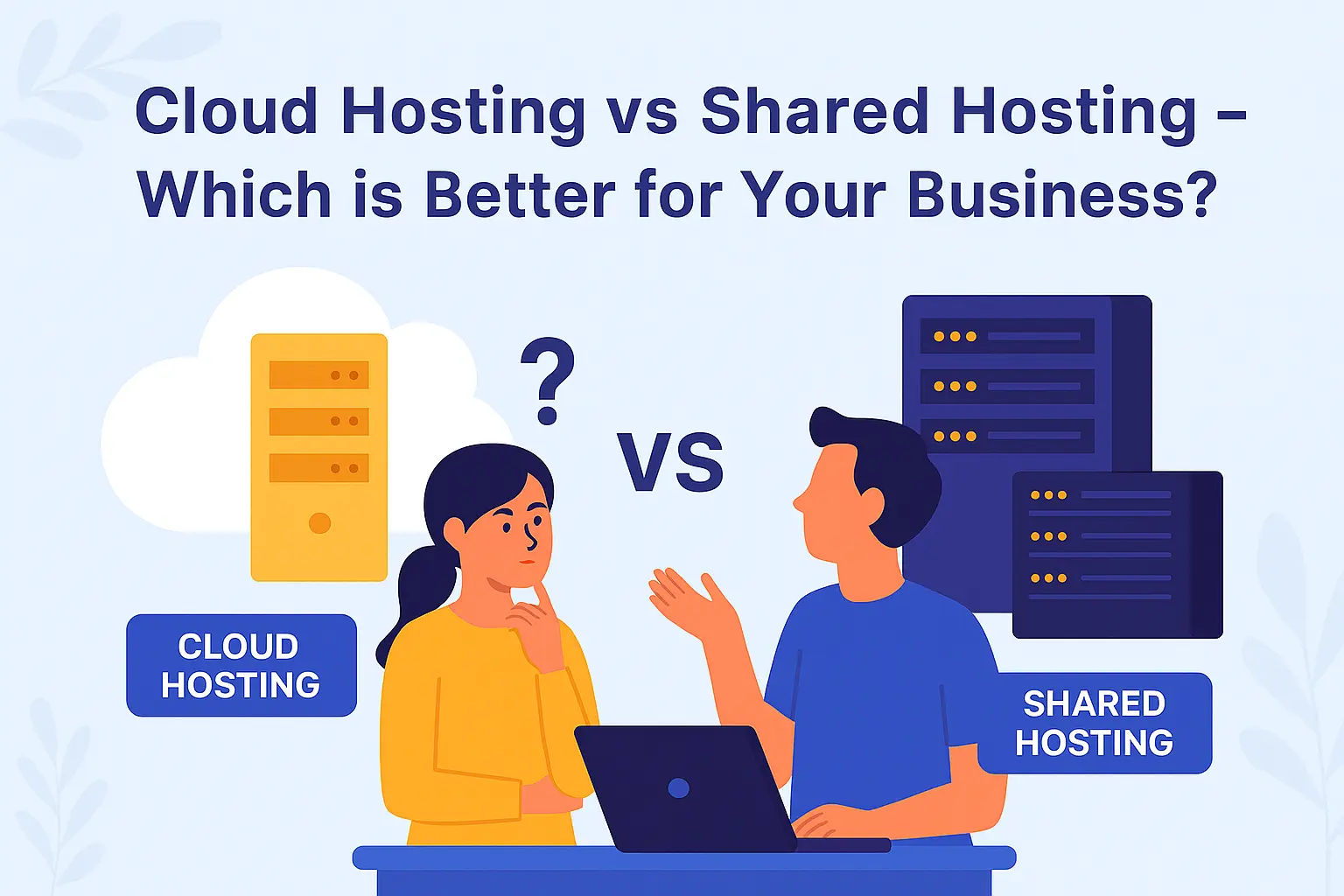Cloud Hosting vs. Shared Hosting: Which is Better for Your Business?
When building a website for your business, one of the first decisions you’ll face is choosing the right type of hosting. For many small businesses, the debate often comes down to cloud hosting vs. shared hosting. While both options have their advantages, understanding the key differences will help you select the one that best supports your goals.
At TechInfo Srl, we’ve helped countless businesses navigate this decision and find the perfect hosting solution. Let’s break down what each option offers and see which might be the better fit for your business.
What is Shared Hosting?
Shared hosting is the most common entry-level hosting plan. Your website shares a single server with multiple other websites, which helps keep costs low.
Pros of Shared Hosting:
- Very affordable
- Easy to set up and manage
- Ideal for low-traffic websites or startups
Cons of Shared Hosting:
- Limited resources since they’re shared
- Lower security compared to isolated environments
- Performance can slow down if other websites on the server use too many resources
Shared hosting works well for businesses just starting out with a simple website, but it may not be enough once your traffic starts to grow.
What is Cloud Hosting?
Cloud hosting, on the other hand, uses multiple servers connected through the cloud to host your website. Instead of relying on a single server, resources are distributed, ensuring better performance and reliability.
Pros of Cloud Hosting:
- Highly scalable—resources can grow with your business
- Reliable, since downtime is minimal with multiple servers
- Better performance for higher traffic websites
- Stronger security features
Cons of Cloud Hosting:
- Slightly more expensive than shared hosting
- Can be more complex to manage without guidance
For growing businesses, cloud hosting offers the flexibility and stability needed to stay competitive online.
Key Differences: Cloud vs. Shared Hosting
- Performance: Cloud hosting typically delivers faster speeds and better uptime than shared hosting.
- Scalability: Shared hosting has limited resources, while cloud hosting can grow as your business expands.
- Security: Cloud hosting offers better isolation and protection, making it safer for handling sensitive data.
- Cost: Shared hosting is cheaper upfront, but cloud hosting offers better long-term value for businesses that expect growth.
Which One Should Your Business Choose?
If you’re just starting out with a simple site and a small budget, shared hosting may be the right choice. However, if you’re planning to grow, sell products online, or expect more traffic, cloud hosting will provide the reliability and performance your business needs.
If you’re still unsure which direction to take, we recommend reading our guide on how to choose the right web hosting plan for a small business, which explores hosting decisions in more detail.
Additionally, if your small business is considering a stronger upgrade path, take a look at why VPS hosting is a smart choice for small businesses.
How TechInfo Srl Can Help
At TechInfo Srl, we know that no two businesses are the same. That’s why we provide tailored advice and comparisons to help you select the hosting option that fits your current needs and long-term growth plans. Whether you choose shared, cloud, or VPS hosting, we’ll guide you to the best solution.
Final Thoughts
The decision between cloud hosting and shared hosting comes down to your business size, budget, and growth potential. Shared hosting is ideal for beginners on a budget, while cloud hosting is the smarter choice for businesses looking to scale and stay competitive.
With expert guidance from TechInfo Srl, you can make a hosting decision that ensures your website runs smoothly today and continues to support your success tomorrow.







